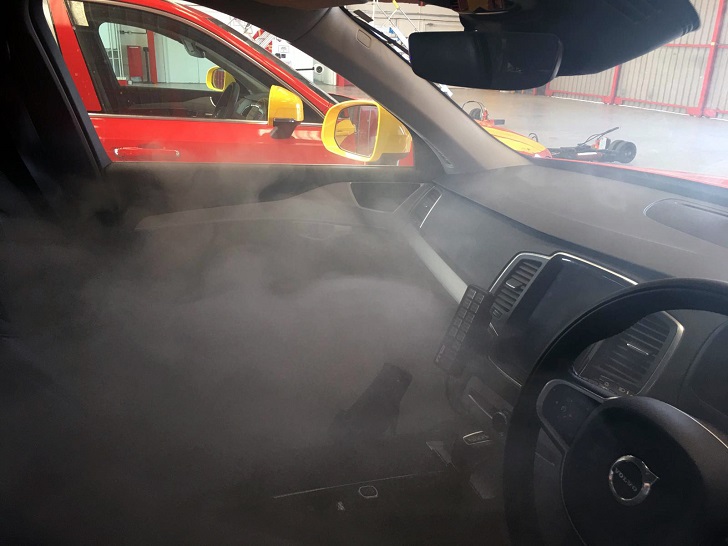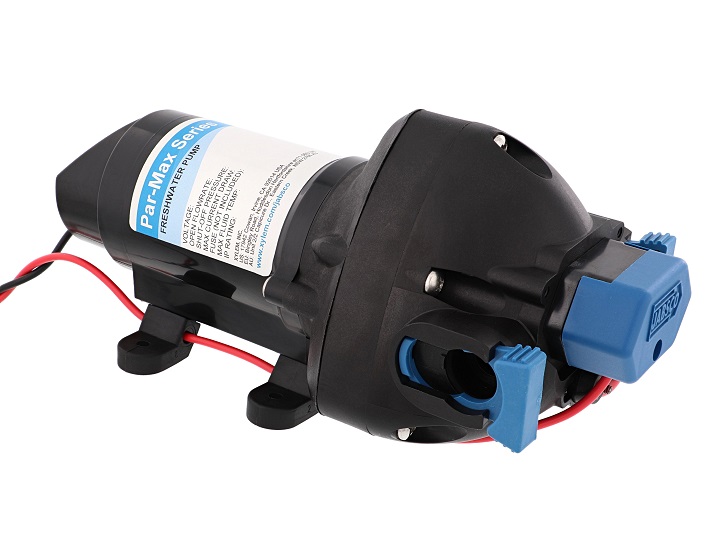

Amidst the global Covid-19 pandemic, the demand for decontamination solutions is high and strict hygiene standards are vital. However, existing methods of disinfection often pose significant threats to health and the environment, so companies must look for new solutions for disinfection requirements.
The founder and CEO of the Global Ecology Group (GEG), Owen J. Morgan, has been working on what are known as Advanced Electro-Chemically Activated Solutions (ECAS) since the early 1990s and the company has recently developed a fogging system particularly suited to safe and sustainable disinfectant solutions.
Powered by electrolysed water that is non-toxic and safe to humans, animals and the environment, the fogging system exterminates 99% of all pathogens that it comes into contact with, including the coronavirus. As a result, the system is suitable for the effective disinfection of large, enclosed spaces such as offices, vehicles and transit carriers, shipping containers and aeroplane cabins.
Safe disinfection ECAS are accessible solutions that protect from microbes while also supporting the need for a safe and environmentally friendly disinfection application. Made from salt, water and electricity, ECAS are safe and sustainable alternatives to traditional disinfectant solutions and can be used to disinfect commercial buildings, control biofilm, clean drinking water, preserve fruits and vegetables, and can also prevent legionella. ECAS are efficient, non-toxic and biodegradable, so they are the perfect decontaminants. They protect against a wide range of pathogens upon contact by removing viruses, bacteria, germs, fungi and their spores in record time using no petrochemical ingredients.
Challenge In response to the Covid-19 pandemic, GEG launched the ECAS Fogging System, a portable plug-and-play dry fogging unit that uses high-grade titanium transducers to deliver very small droplets of disinfection solution at a rate of between 4–24 litres/hour, depending on the size of the system.
During the product development stage, GEG called on global water technology company, Xylem, to provide its 2.9 GPM Motor Driven Diaphragm (MDD) water pressure pumps to aid the transfer of ECAS from its vat into the portable fogging system. The 2.9 GPM MDD can pump an output flow of 11 l/min and its multi-diaphragm design self-primes to a 10 ft vertical lift, with the ability to run dry without damage.
The pump also comes equipped with a pulsation dampener which eliminates vibration, while the built-in bypass facilitates a smooth, quiet flow, eliminating the need for an accumulator tank. Due to its capabilities, Xylem’s 2.9 GPM MDD was selected as the right pump for the job, offering increased operational efficiency and enhanced durability.
Cost effective and reliable Commenting, Owen J. Morgan said: “I first started using Xylem’s pumps over seven years ago when I needed a cost-effective, reliable pump for a pulsed water system I was developing. No matter the task at hand, Xylem’s MDD pumps never faltered. When it came to developing our automated ECAS priming system for our new fogging systems, I had no hesitation in specifying Xylem’s MDD pumps.
I have been involved in fluid transfer for over 30 years and a key to the success of our fogging system in the field is a reliable, accurate and constant self-priming pump operation, which is why Jabsco, a Xylem company, continues to be our pump provider of choice. ECAS fogging is going to be a very important tool in keeping our spaces and places free from the virus, and we are proud to partner with Xylem to deliver new, sustainable solutions to the disinfection market.”
Result Since its launch, GEG have carried out numerous demonstrations of the ECAS fogging system, including trials with air ambulance services in the UK. Following a demonstration of the ECAS powered fogging system to the East Anglian Air Ambulance team at Norwich Airport in June 2020, ATP hygiene tests carried out pre- and post-fogging revealed a 99.4% reduction in Relative Light Units (RLU). ATP hygiene tests use RLU as the unit of measurement for adenosine triphosphate, an enzyme that is present in all living cells, including microbes.
In July 2020, ECAS was tested by Perfectus Biomed in Cheshire, UK. According to BS EN 14476:2013+ A2:2019, a European Standard quantitative test method for coronavirus, ECAS showed strong viricidal activity under clean test conditions, demonstrating a greater than log 4 reduction of the viable coronavirus even at dilutions of up to 1%.




